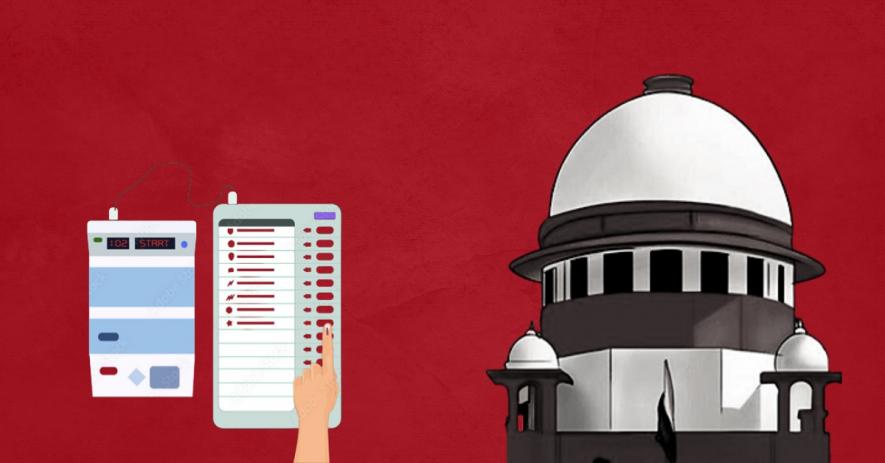Election Commission of India Says Voters’ Names Not to be Removed Without Prior Notice

The Election Commission has affirmed to the Supreme Court that voters’ names will not be removed from electoral rolls without prior notice. A petition had been filed that challenged the validity of Rule number 18 of the Registration of Elector’s Rules (1960). The petitioners, former bureaucrats M.G. Devasahayam, Somasundar Burra, and Aditi Mehta, argued in their petition that the existing Rule permitted the deletion of names without any inquiry or chance to be heard.
The ECI, in a response issued by a bench of Justice Sanjiv Khanna and Justice S. V. N. Bhatti, firmly established that voters’ names will not be removed from the rolls without giving them sufficient advance notice. The Supreme Court Justices closed the PIL, satisfied with the responses from the ECI.
The basis of the petitioners’ argument rested on Rule 18 of the Registration of Electors Rules, 1960. They argued that it allowed the Electoral Registration Officer (ERO) to eliminate a voter’s name from the roll without notification or any opportunity to present their case. However, the ECI countered this by stating that while Rule 18 does allow the ERO to accept claims or objections without investigation, a person can request an inquiry in writing if they consider wrongful. This must be handled by the ERO upon such request.
The ECI also emphasised that its focus on transparency is intended to stop and prevented instances of fake or ineligible voters. In such a scenario, the commission issues public notices for all objections raised thus ensuring that due process is followed.
The framework established by the ECI also has its stipulations on the timing and procedures for claims and objections. Rule 17 empowers the ERO to reject claims or objections that do not adhere to prescribed timelines or formats. However, the next one, Rule 18 allows the ERO to accept valid claims or objections, but this acceptance is deferred until seven days after notice publication or until a written inquiry demand is fulfilled.
Furthermore, continuing in line with its commitment to transparency, Rule 20 mandates an inquiry by the ERO when a claim or objection isn’t immediately accepted or rejected. Rule 19 stipulates that notice should be given to all concerned parties and the ERO has the discretion to call claimants, objectors, or those objected to appear before them and provide evidence under oath. Rule 20 also permits the ERO to consider inputs from relevant individuals, ensuring a thorough examination of claims.
More importantly, Rule 21 grants the ERO the authority to correct accidental or wrongful inclusions before the final publication of the electoral roll.
In a letter dated 14th February 2019, the ECI announced that names will continue to be added to the electoral rolls until the last date of filing nominations. This measure was given to ensure that rightful citizens are not denied their right to vote.
Acknowledging concerns raised over wrongful removals, the ECI introduced additional safeguards through instructions to Chief Electoral Officers in all states and Union Territories. A letter issued in 2003 emphasised error-free electoral rolls and discouraged wrongful removals.
It is clear that the ECI takes several preventative and precautionary steps and ensures that there is no abuse of power or frivolous deletions.
Thus the ECI’s 2003 letter specified that no suo moto deletion shall occur in an election year after the final publication of rolls. If any deletion is necessary post-publication, the ERO must consult the District Election Officer before proceeding. Moreover, the ERO is required to send an SMS and email to the concerned elector if their contact information is available.
While the Supreme Court did not delve into the merits of the letter, it endorsed the ECI’s 2013 directive. The Court also observed that “In case there are individual or specific lapses, it would be open to the parties, including the petitioners, to approach the State Election Commission or the concerned Election Officer. In case any such grievance is not redressed, the parties may take recourse to appropriate remedy in accordance to law.”
The PIL’s closure, heard in the Supreme Court by Justice Sanjiv Khanna and Justice S. V. N. Bhatti, brings to light the essential checks and balances implemented by the ECI.
Read the full copy of the order here:
Get the latest reports & analysis with people's perspective on Protests, movements & deep analytical videos, discussions of the current affairs in your Telegram app. Subscribe to NewsClick's Telegram channel & get Real-Time updates on stories, as they get published on our website.
























